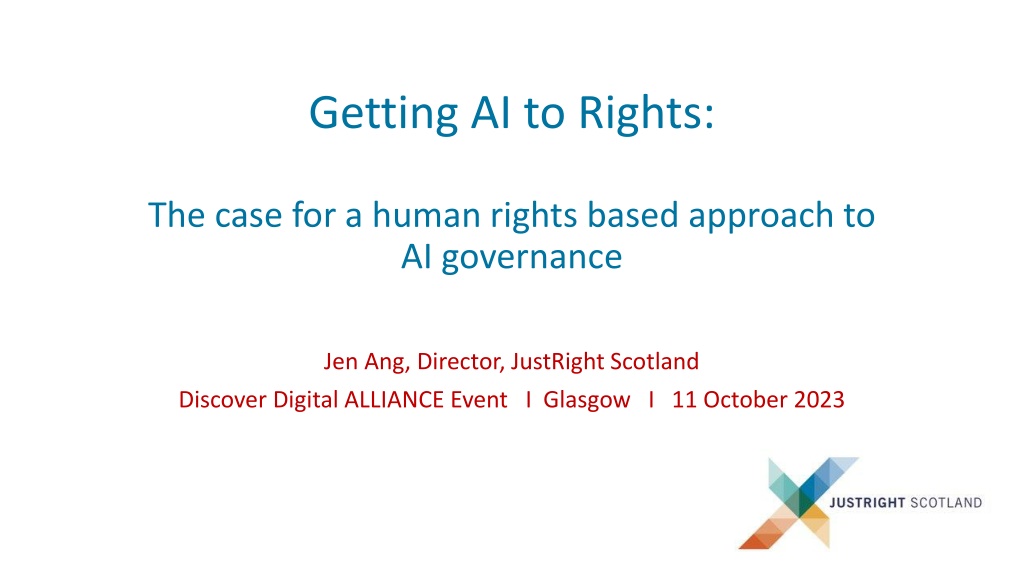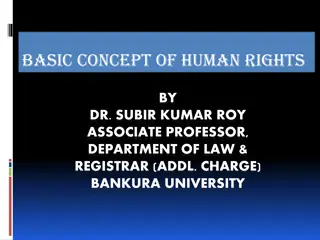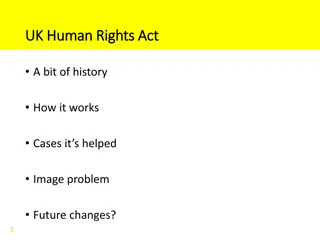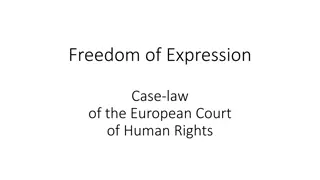Ensuring AI Governance Through a Human Rights Approach
AI governance frameworks are evolving with a focus on innovation, trustworthiness, and inclusivity. Implementing a human rights-based approach in AI regulation can address risks and enhance benefits in various sectors, including healthcare. Global regulations are emerging, such as the EU's Artificial Intelligence Act and the US Blueprint for AI Bill of Rights. The UK and Scottish strategy emphasizes safety, transparency, fairness, and accountability in AI development. Case studies in health and social care demonstrate the potential of AI in improving healthcare outcomes.
Download Presentation

Please find below an Image/Link to download the presentation.
The content on the website is provided AS IS for your information and personal use only. It may not be sold, licensed, or shared on other websites without obtaining consent from the author. Download presentation by click this link. If you encounter any issues during the download, it is possible that the publisher has removed the file from their server.
E N D
Presentation Transcript
Getting AI to Rights: The case for a human rights based approach to AI governance Jen Ang, Director, JustRight Scotland Discover Digital ALLIANCE Event I Glasgow I 11 October 2023
Why a human rights approach to AI? 1. AI governance frameworks are emerging and untested 2. Focus is on being pro-innovation and encouraging development that is trustworthy,ethical and inclusive 3. AI is already being used in health contexts in Scotland - what are the benefits and risks? 4. Can a human rights based approach to AI governance and regulation make a difference?
How is AI regulated globally? National, regional and global AI frameworks are emerging and untested none are in operation yet EU: Artificial Intelligence Act (draft legislation) expected in effect 2024 US: Blueprint for AI Bill of Rights (non- binding) Canada: Artificial Intelligence and Data Act (draft legislation)
What is the UK & Scottish strategy? Safety, security and robustness Transparency and explainability Fairness Accountability and governance Contestability and redress
UK: A pro-innovation approach to AI regulation Principles are to be interpreted and acted on by existing regulators to guide and inform development and use of AI Central support function to be established to support regulators & Foundation Model Taskforce (research) No new legislation No additional powers Regulators have no legal obligation to take principles into account
Case Study: AI in health and social care in Scotland The University of Edinburgh, Edinburgh Napier University, NHS Lothian and Lenus Health Delivers the most relevant clinical data and predictive analytics directly to emergency care teams to support cardiac care The aim is to prevent some of the reattendances from those who received acute cardiac care within the past 30 days within NHS Scotland Paul McGinness, CEO of Lenus Health: The Lenus disease management platform is rolled out across major health boards covering 68% of the Scottish population and is uniquely able to develop and deploy both in-house and third-party AI models.
Case Study: AI in health and social care in Scotland Benefits Saves time and money Saves lives Risks What data is the algorithm built on? How do you monitor systemic bias? What info or choice are patients given? If patients do not consent, what happens? How is success measured? Are we monitoring impacts for marginalised groups (minoritised people, disabled people, older people)? Sian Harding, The Guardian (18 September 2022)
What could a human rights approach look like? The PANEL Principles Participation Accountability Non-discrimination Empowerment Legality
What could a human rights approach look like?
What difference could a human rights based approach to AI legislation make? Non-discrimination clause Clear bans on uses of AI considered to be a threat to people and regulation of AI seen to be a threat to rights Right to know if AI was used to generate content (Chat GPT) Right to understand how AI works and to informed consent to its use / data sharing Remedy for breach of rights Image: @cottonbro
Contact Us Jen Ang Director, JustRight Scotland E: jen@justrightscotland.org.uk T: 0141 406 5350 W: www.justrightscotland.org.uk Twitter: @justrightscot @jenanglaw























